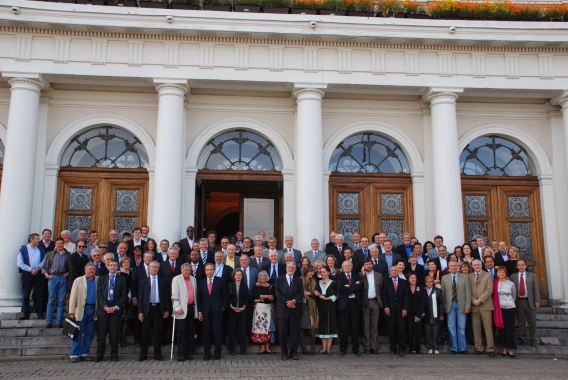The Observatory, the Copenhagen Summit and the 2009 Elections
History Series #9
Brussels, 6 December 2013 | Social
The European Social Housing Observatory, created initially in 1993 and re-launched in 2004, stimulated the advocacy work of CECODHAS Housing Europe, making the case for social housing to the European Parliament, the European Commission and national governments. In 2006 the Observatory produced a detailed membership census that informed the CECODHAS five-year strategic plan (2007-2012) adopted in Vienna later in the year.
In the year after, 2007, three publications offered a wide range of figures and presented the landscape of the sector at EU level:
- A comprehensive review of social, co-operative and public housing in the 27 member states
- A report on managing social rented housing in the EU
- A report on the growing impact of EU law on housing.
David Orr, president of CECODHAS Housing Europe from 2008 onwards, highlighted that “the work of CECODHAS and its members is not simply about housing. Housing is at the core of everything we do, but we do so much more. Developing a better understanding of the breadth of our offer in the European Parliament, in national governments and in the Commission is vitally important and will be one of the main themes of my presidency”.
In 2009 CECODHAS Housing Europe issued its “Compenhagen Offer, stating that in partnership with energy producers, citizens, professionals & local authorities and with appropriate funding & legislation social and cooperative housing can accelerate refurbishment rates to achieve optimal energy performance in 8 million homes between 2010 & 2020. Social and cooperative housing made up 12% of the EU’s housing stock, if 4% of stock is refurbished annually, backed up with a sustained change in residents’ behaviour, this could help deliver 30% reduction in energy consumption by 2020. The “Copenhagen Offer” explains more in details what is the potential and the missing strategies to reach a refurbishment rate of a million dwellings annually, representing the creation of almost 350.000 jobs across Europe each year.
In the same year CECODHAS Housing Europe launched its manifesto ahead of the European Elections 2009. Under the general title “Housing Europe: the social and the green way” the text was focusing on 3 main priorities for the period up to 2014:
• Invest in social innovation; local social capital and social infrastructure by promoting all forms of enterprises and local initiatives.
• Lead the green industrial revolution by promoting energy efficiency and renewable energy in housing.
• Commit to ensuring all citizens have access to a decent and affordable home and a life in dignity by actively promoting policies to implement it.
Today, just a few months ahead of the European Elections 2014, the new manifesto is ready, setting up new priorities, demands and proposals within probably the most challenging period in the modern European history. The history of CECODHAS Housing as presented in our blog series is going to be used as a useful guide for the future challenges for the affordable housing sector in Europe.
Leave comments